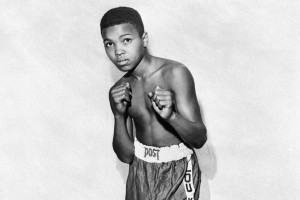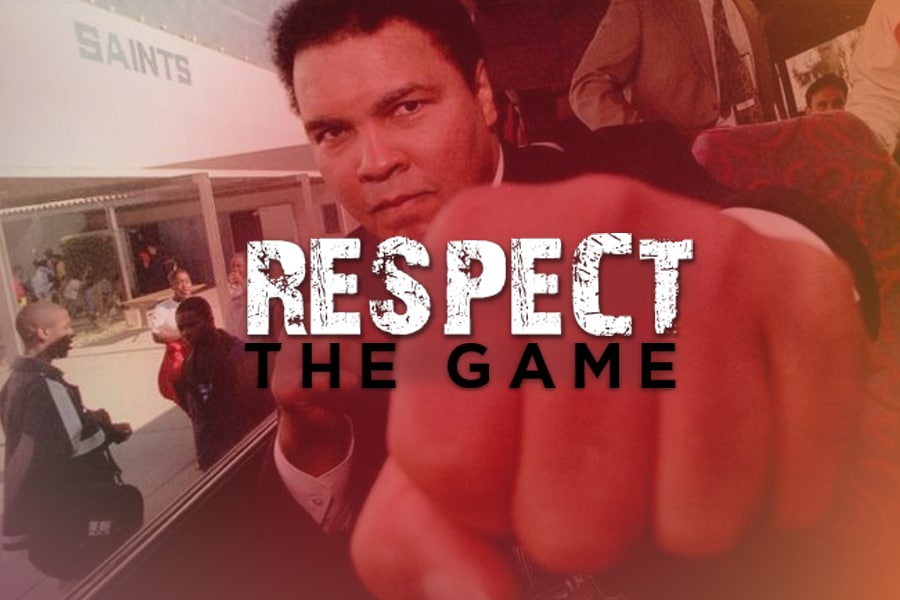“Some people believe football is a matter of life and death, I can assure you it is much more important than that”. Bill Shankly. Liverpool FC Manager.
Now I know at times lots of people feel like the above quote is an exaggeration but as a New Zealander I can tell you that when the All Blacks play a lot of my fellow countrymen believe that statement rings true. With the passing on June 6 of “the Greatest Of All Time”, Muhammad Ali, I feel that sport does have a very important part to play in life and death. Without the sport of boxing where would the 12 year old Cassius Clay Junior

have found his avenue to seek revenge for the theft of his bicycle. The sport of boxing gave him focus and direction. His father said he was happy that boxing kept him off the streets of Louisville, Kentucky.
And look how far his dedication to the sport of boxing propelled him. Of course he also propelled boxing into the limelight but Muhammad Ali’s fame transcended not only sport but also race, religion and even war.
The Greatest Of All Time – That’s the name he gave to himself in his early years and he sure was good at talking about himself. He would predict how many rounds it would take to beat an opponent. Who does that and then makes it a reality?
His boxing life has so many highlights it has been made into numerous Hollywood movies. In the 1970s the Fight of the Century and the Thrilla in Manila, both against Joe Frazier, are said to be two of the most brutal heavy weight fights of all time. ‘The Rumble in the Jungle’ fight in Zaire against George Foreman in 1974, where Ali regains his crown, was made into the movie ‘When We Were Kings’. There are too many great boxing moments to list them here but thank goodness we now have video platforms on the internet that allow us to view these gems today.
Muhammad Ali’s greatest victories however were fought outside the ring and this is where he teaches us about the virtues that RESPECT THE GAME shines a light on.
In 1964 during a time of racial unrest in America he joined a religion that he believed was a way to liberate black people from inequality. He announces he is a black Muslim and changes his name to Muhammad Ali the day after he becomes the Heavy Weight Champion of the World. It’s a polemic choice of faith that divides the nation and draws suspicion from the authorities.
He fights as a man of faith.
Three years later he refuses induction into the U.S. Army due to his religious convictions claiming, “No Vietcong ever called me Nigger”. The reaction is swift and harsh, within hours he is stripped of his boxing crown and his boxing license is revoked. A court fines him $10,000 and sentences him to five years in prison. He remains free pending appeal but he is still unable to box.
His fight continues as a conscientious objector. In 1971 the supreme court overturned his draft-evasion conviction of 1967. Ali fights for another 10 years until he hangs up his gloves 17 years after first becoming the Heavy Weight Champion of the world and 21 years after winning gold at the Rome Olympics.
Three years later Ali is diagnosed with Parkinson’s disease, a neurological disorder characterised by muscle tremors and slowness of speech.
Just last week in his eulogy former President of the United States, Bill Clinton, called Ali ‘a universal solider for humanity’. A fight that continues even beyond the grave. He fought at street level. ln Los Angeles, in 1981, he talked a young man out of jumping off a building after a Police psychologist and a Chaplin had had no success.
He fought on the world stage. Just prior to the Gulf War in 1990 he flew to Iraq to meet with Saddam Hussain where he negotiated the release of 15 American hostages. Ali is the common man and a figure on the world stage.
He transcends the limits of life and death and personifies everything that RESPECT THE GAME stands for. Thirty five years after he retired from boxing he is still, and will always be, the Champion of the World: the Greatest Of All Time















